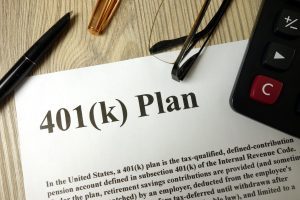As the calendar year wraps up, now’s the time for 401(k) plan sponsors to double-check that everything is in order—from contributions to compliance notices. Whether you’re a business owner or part of the HR team, this checklist outlines key responsibilities and who in your organization should be handling them.
1. Review Employee Deferrals and Employer Contributions
Task: Ensure all employee and employer contributions were made timely and accurately.
Who’s Responsible:
- Payroll/HR Manager: Confirms deferral amounts were deducted and deposited.
- Controller or CFO: Reviews employer match and profit-sharing contributions.
- CPA/External Advisor: Checks that contribution limits and deadlines are met.
2. Verify Compliance Testing Requirements
Task: Prepare for or review nondiscrimination tests (ADP/ACP, Top-Heavy, etc.).
Who’s Responsible:
- HR/Benefits Administrator: Gathers employee data.
- Third-Party Administrator (TPA): Performs testing.
- Plan Sponsor/Owner: Reviews results and takes corrective action if needed.
3. Confirm Required Minimum Distributions (RMDs) Are Processed
Task: Ensure RMDs are distributed to eligible participants by year-end.
Who’s Responsible:
- TPA or Recordkeeper: Identifies who must take RMDs and calculates amounts.
- HR Manager: Communicates with participants if needed.
- Owner/Trustee: Oversees completion.
4. Distribute Annual Participant Notices
Task: Send any required year-end notices (Safe Harbor, QDIA, auto-enroll).
Who’s Responsible:
- HR/Benefits Administrator: Distributes notices or ensures delivery by recordkeeper.
- Recordkeeper or TPA: Prepares standard notice templates.
- Plan Sponsor: Ensures deadlines (typically by Dec 1) are met.
5. Review Plan Documents and Amendments
Task: Confirm your plan is up to date with any required changes (e.g., SECURE Act 2.0).
Who’s Responsible:
- CPA or Plan Consultant: Advises on required or optional changes.
- TPA: Updates plan documents.
- Plan Sponsor/Owner: Signs off on plan amendments.
6. Reconcile Plan Assets and Participant Accounts
Task: Match participant records with plan trust statements.
Who’s Responsible:
- Recordkeeper: Provides statements and transaction reports.
- Controller or Accounting Team: Performs reconciliations.
- CPA: Assists in identifying discrepancies before year-end close.
7. Prepare for Form 5500 Filing
Task: Review prior filings and begin prep for the next 5500 (due mid-year).
Who’s Responsible:
- TPA or Recordkeeper: Handles most Form 5500 prep.
- Custodian/Recordkeeper: Provides statements and transaction reports.
- HR Manager or Controller: Provides necessary payroll and plan info.
- CPA (if audit required): Conducts plan audit for large plans (100+ active participants at the beginning of the Plan year).
8. Evaluate Plan Fees and Service Providers
Task: Benchmark plan fees and review provider performance.
Who’s Responsible:
- Plan Sponsor or Owner: Oversees fiduciary review.
- HR Manager: Collects fee disclosures.
- CPA/Advisor: Assists in benchmarking or comparison analysis.
9. Plan Ahead for Next Year
Task: Consider plan design updates, limit changes, and employee education.
Who’s Responsible:
- Business Owner or CFO: Evaluates financial impact of plan changes.
- HR Manager: Coordinates communication to employees.
- CPA/Advisor: Recommends tax-smart strategies for contributions.
Key Year-End 401(k) Deadlines for Plan Sponsors (2025)
| Task | Deadline | Who’s Involved |
| Distribute Safe Harbor Notices | December 1, 2025 | HR / Recordkeeper |
| Distribute QDIA/Auto-Enroll Notices | December 1, 2025 | HR / Recordkeeper |
| Process Required Minimum Distributions | December 31, 2025 | TPA / HR / Plan Sponsor |
| Finalize Employee Contributions | Payroll year-end | HR / Payroll |
| Make Employer Contributions | By tax filing deadline (plus extensions) | Owner / CPA / Payroll |
| File Form 5500 (prior year) | July 31, 2026 Initial Filing Deadline and October 15, 2026 Extended Filing Deadline (calendar year plans) | TPA / CPA / HR |
Conclusion
Year-end is the perfect time to clean up loose ends and plan ahead. Whether you’re looking to stay compliant, make the most of tax deductions, or boost employee engagement, this checklist can help you close out the year with confidence.
Need help navigating your responsibilities as a 401(k) plan sponsor? Contact your CPA or plan advisor for support.




